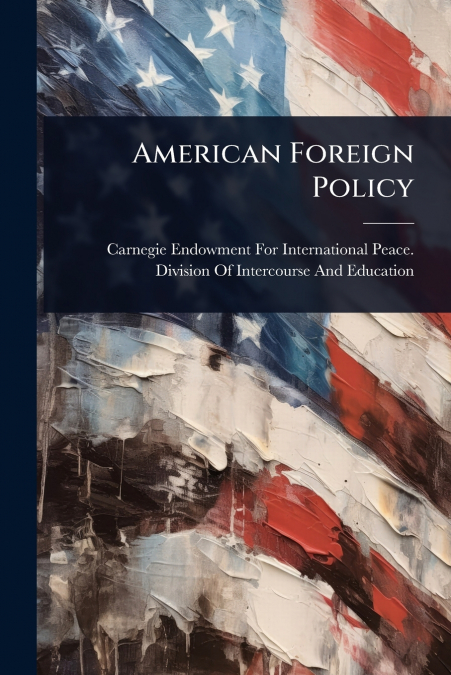
Carnegie Endowment For International ...
American Foreign Policy, published around 1920 by the Carnegie Endowment for International Peace, offers a valuable snapshot of the prevailing attitudes and approaches to international relations in the immediate aftermath of World War I. This work provides insights into the key debates and perspectives that shaped American foreign policy during a crucial period of global realignment. Readers interested in the historical context of American diplomacy and the evolution of international relations thought will find this book a fascinating primary source. It reflects the intellectual climate of the time and sheds light on the challenges and opportunities facing the United States as it navigated its role on the world stage. The book captures a pivotal moment in history when the foundations of modern international relations were being laid, making it essential reading for scholars and anyone seeking a deeper understanding of the forces that have shaped global politics.This work has been selected by scholars as being culturally important, and is part of the knowledge base of civilization as we know it. This work was reproduced from the original artifact, and remains as true to the original work as possible. Therefore, you will see the original copyright references, library stamps (as most of these works have been housed in our most important libraries around the world), and other notations in the work.This work is in the public domain in the United States of America, and possibly other nations. Within the United States, you may freely copy and distribute this work, as no entity (individual or corporate) has a copyright on the body of the work.As a reproduction of a historical artifact, this work may contain missing or blurred pages, poor pictures, errant marks, etc. Scholars believe, and we concur, that this work is important enough to be preserved, reproduced, and made generally available to the public. We appreciate your support of the preservation process, and thank you for being an important part of keeping this knowledge alive and relevant.